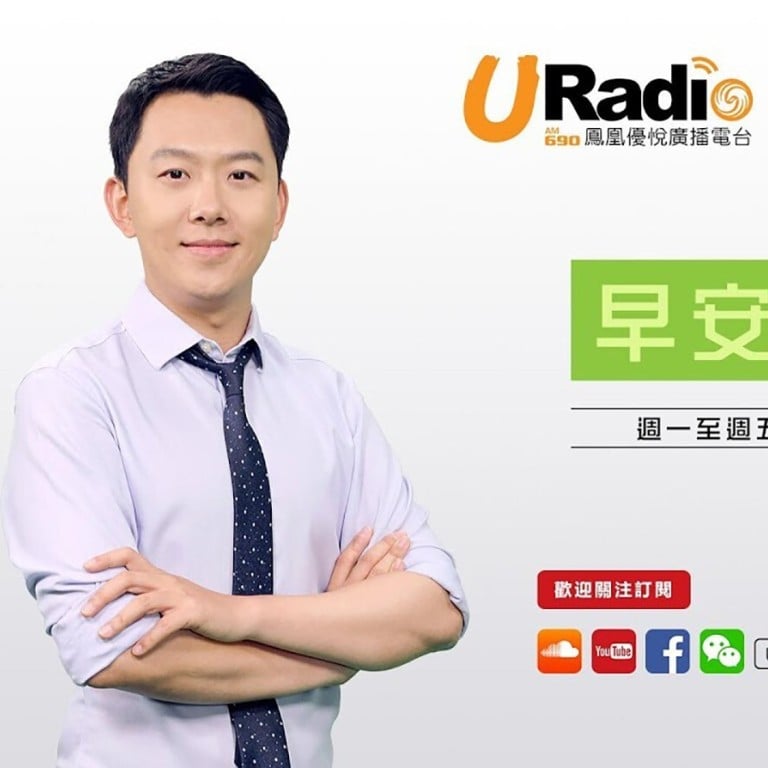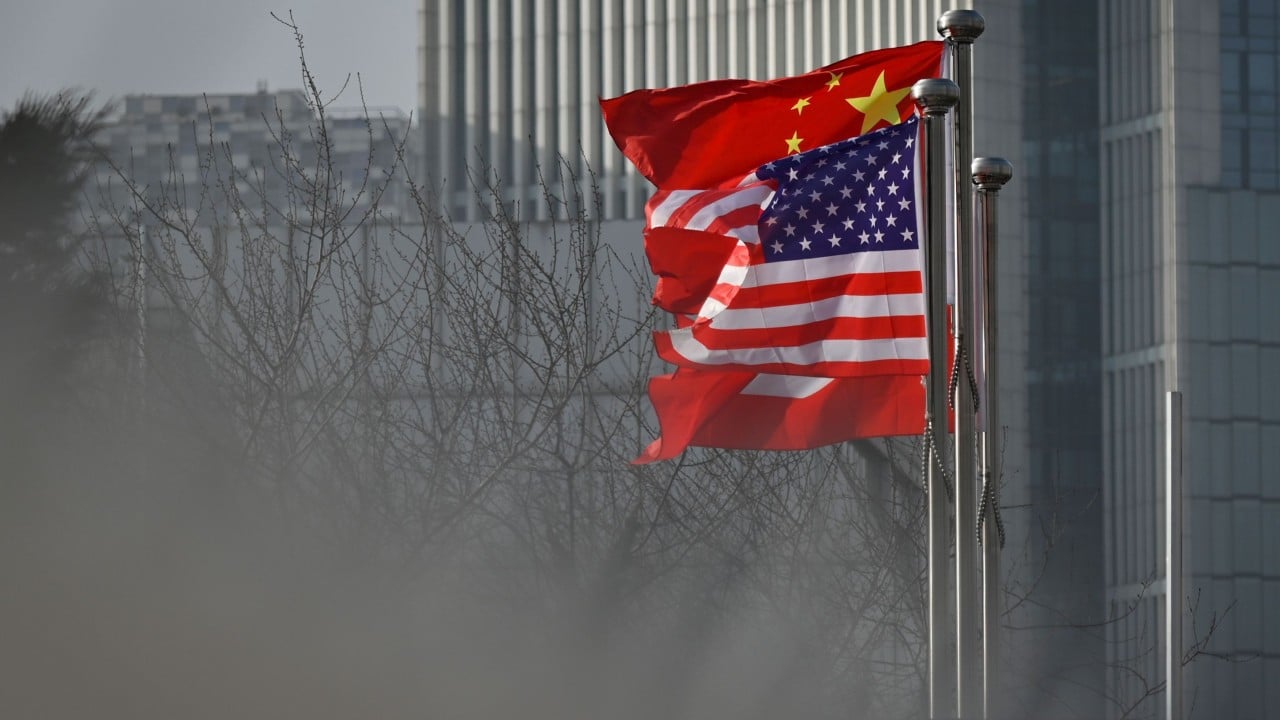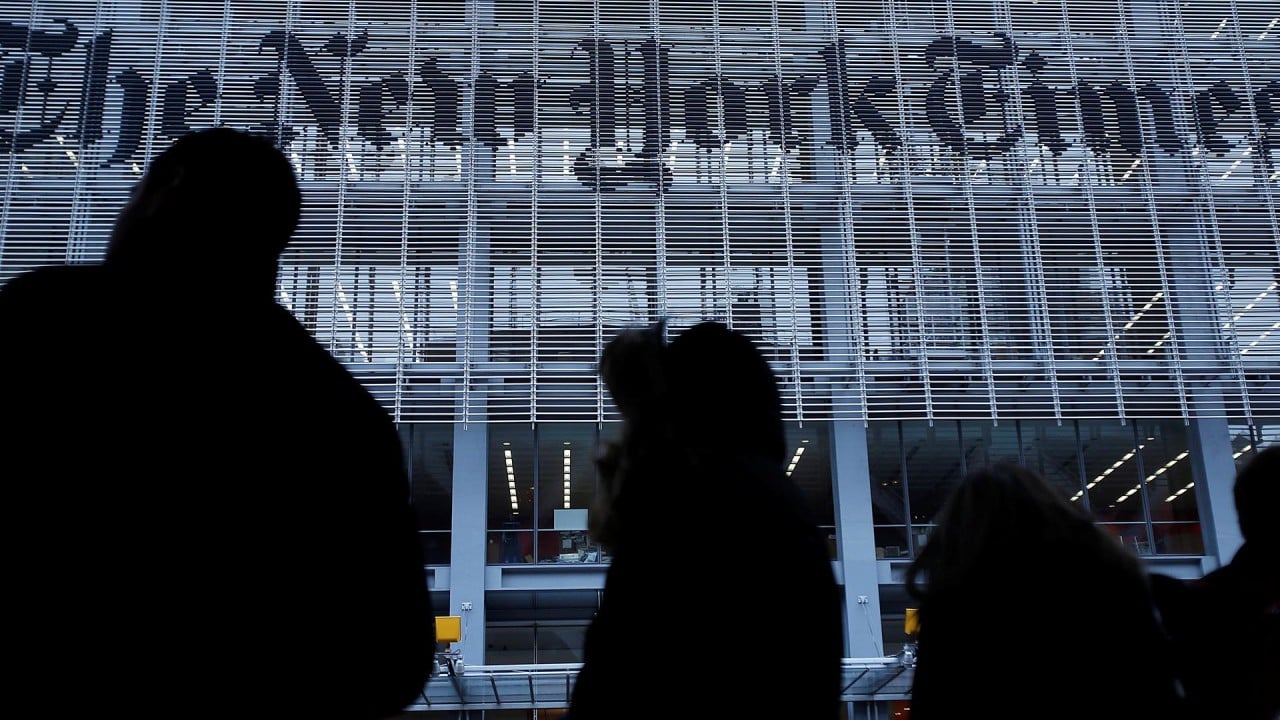
Why is the US worried about a Chinese-language radio station in California?
- The US regulator has ordered URadio to close, and said it failed to disclose its owner, Phoenix Radio, which has ties to the Chinese government
- It came on the day that the US designated four Chinese state media outlets as ‘foreign missions’
“Our generation has been caught up in the most consequential divorce in modern history, which is the divorce between China and the United States,” media commentator Shi Shushi told station host Hong Xi. “All of us are preparing for this.”
The station, URadio AM690, became part of that story just one month later. As the strategic rivalry between Beijing and Washington has intensified, so has the scrutiny over the role Chinese media play in the US and the aggressive targeting of international audiences by the Chinese state media apparatus in recent years.

01:38
US designates 4 more Chinese media organisations as ‘state propaganda outlets’
The FCC said the station’s application to broadcast from its studio in Irwindale, California, to the XEWW-AM station in Mexico to be rebroadcast into the US failed to list a key applicant: its owner, Phoenix Radio.
Phoenix Radio is owned by Phoenix TV, a Hong Kong-based broadcaster partially owned by Chinese state entities with close ties to the Chinese leadership.
That relationship was believed to have given Phoenix TV greater freedom in its programming compared with fully state-owned media, helping it build popularity and influence in China. For many Chinese immigrants in the US, seeking Chinese-language media focused on their community, Phoenix provides an important service.
But the FCC said in its statement that Phoenix Radio had been omitted from the URadio application filed by New York investment firm H&H Group and GLR Southern California, a company owned by H&H.

02:16
China expels three reporters from US-based Wall Street Journal over ‘racist’ opinion piece
The commission said the station’s programming was “supplied, created and produced in a studio used, owned and maintained by Phoenix Radio”. The Chinese state-owned Extra Steps Investment and China Wise owned 20 per cent and 8 per cent of Phoenix respectively, the FCC said.
Under US laws, the FCC bars foreign individuals, governments and corporations from owning more than 25 per cent of entities run in the US that directly or indirectly control radio stations in the country.
In the original application filed by Vivian Huo, a US citizen and Beijing native who owns most of H&H, URadio programming was to “provide a full range of Mandarin Chinese-language programming on station XEWW-AM including music, entertainment, weather report, local traffic report and local Chinese community news”.
XEWW-AM was originally a Spanish-language station that broadcast from Mexico into southern California, before H&H bought the station in mid-2018 and rebranded it the Chinese-language URadio.
US urged to make Chinese state media register as foreign agents
In a statement posted on its website in April, URadio said the station had complied with all US laws, and encouraged people to tune in to AM690 to “eliminate distortions and bias towards us”.
“With the intent to provide information that upholds universal values of openness, democracy and freedom, we recruit our team members from all different backgrounds, including people from mainland China, Taiwan and Hong Kong, to provide diverse voices and objective views,” the statement said. “We are certain that our contents withstand public and regulatory reviews.”
None of URadio, Phoenix and Huo responded to questions about political restraints on their content and whether they would reapply for a permit, with Phoenix listed as an applicant. The FCC declined to comment on the case.
Critics have said there are significant implications to allowing a partially Chinese state-owned media outlet to broadcast to the Chinese diaspora in the US through Mexico. US Senator Ted Cruz was a particularly vocal opponent, celebrating the FCC’s dismissal of the station’s permit as an “important message to the world that the US will not allow China to exploit FCC loopholes and spread its propaganda over our airwaves”.

02:24
China expels American journalists from The New York Times, Wall Street Journal and Washington Post
In 2018, Chinese Sound of Oriental and West Heritage, the licensee of another Chinese-language radio station in California, filed a petition to deny the broadcast application for URadio over similar concerns that it would help spread Beijing’s propaganda.
The Trump administration has not always been hostile to Phoenix. Two years ago, one of its correspondents, Wang Bingru, interviewed US Secretary of State Mike Pompeo and was featured in a video tweeted by US State Department spokeswoman Morgan Ortagus in celebration of the Lunar New Year.

